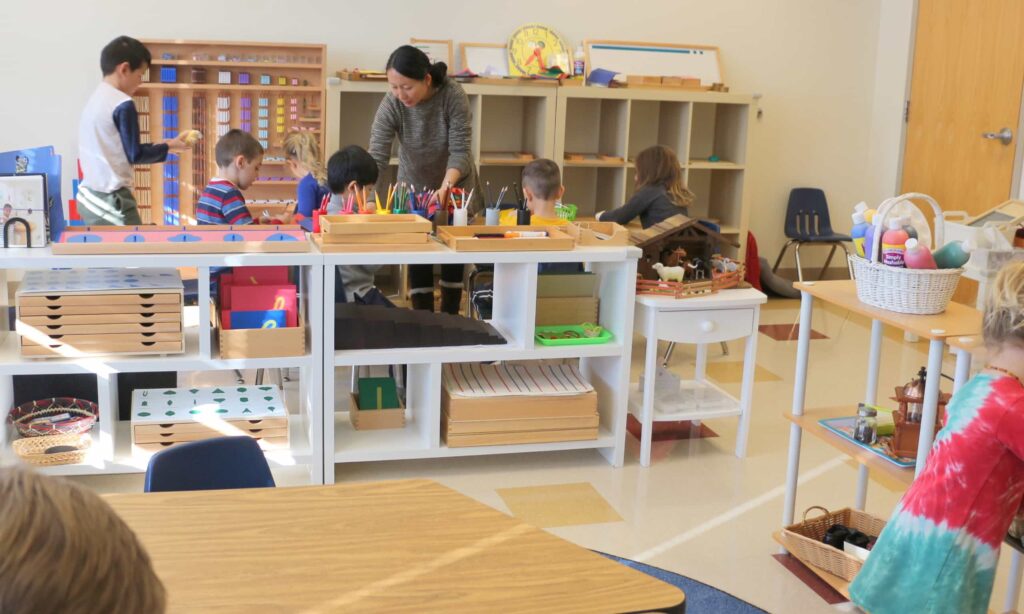The Montessori method has gained immense popularity for its child-centered approach, hands-on learning, and focus on independence. Developed by Dr. Maria Montessori in the early 1900s, this teaching style has inspired schools worldwide to encourage self-motivation and creativity among children. However, despite its many strengths, the Montessori approach has also faced several criticisms. Parents and educators often debate whether it provides enough structure, social learning, and academic balance for every child.
Understanding these concerns is important for parents trying to make the best decision for their child’s early education. Let’s explore the biggest criticisms of Montessori education, why they exist, and how many modern Montessori schools are addressing them.
1. Lack of Structure and Guidance
One of the most common criticisms of Montessori education is that it may not provide enough structure for children who need more guidance. The Montessori method encourages freedom of choice, allowing children to pick their own activities and learn at their own pace. While this independence can be empowering, it can also lead to uneven learning progress, especially for children who struggle with self-direction.
Some critics believe that this level of freedom might make it harder for students to transition into more traditional schools later on. In a typical classroom, schedules and lessons are more defined, which can help children build discipline and time management skills.
For parents looking to balance independence with guidance, it’s important to research schools carefully. Many of the Best Montessori Schools in Clive, IA have modernized the Montessori model by introducing structured group sessions alongside individual learning, ensuring students enjoy both flexibility and consistency.
2. Limited Social Interaction
Another key concern about Montessori education is the potential for limited social interaction. In Montessori classrooms, children often work independently or in small groups instead of participating in large group lessons. While this helps them develop focus and concentration, some argue that it reduces opportunities for teamwork and collaborative learning.
Social development is a crucial part of early education. Critics suggest that children in Montessori settings might miss out on learning important skills like cooperation, competition, and shared responsibility. However, many Montessori schools today are addressing this by incorporating group projects, peer mentoring, and community-building activities into their daily routines.
3. Teacher Involvement and Assessment Gaps
Montessori classrooms rely heavily on observation rather than direct instruction. Teachers act as guides rather than traditional instructors, stepping in only when necessary. This approach helps children take control of their learning, but it may result in less immediate feedback and limited formal assessment.
Parents sometimes worry that without regular testing or grading, it’s hard to measure progress accurately. Critics argue that this could make it difficult to identify academic weaknesses early on. To overcome this, many Montessori schools now combine traditional assessment methods with Montessori evaluations, offering a well-rounded picture of a child’s growth.
4. Cost and Accessibility
Montessori education is often associated with higher tuition costs, which can make it less accessible to some families. Because Montessori classrooms require specialized materials and trained teachers, maintaining this model can be expensive. Public Montessori programs exist, but they are limited compared to private options.
This issue highlights the need for more inclusive educational opportunities that follow Montessori principles without the heavy financial burden. Some schools are working to bridge this gap by offering scholarships or flexible fee structures, ensuring that more children can benefit from this unique approach to learning.
5. Adaptation to Real-World Settings
Critics also question how well Montessori students adapt to structured environments later in life. In Montessori schools, students are encouraged to make their own choices and move at their own rhythm. While this develops independence and confidence, transitioning to traditional schooling or work environments — where there are fixed schedules and specific expectations — can sometimes be challenging.
Supporters of Montessori, however, argue that these children often adapt quickly because of their strong self-motivation, creativity, and problem-solving skills. Many educators believe that the long-term benefits of independence outweigh the short-term adjustment period.
Real-World Perspective: Evolving Montessori Practices
Today’s Montessori schools are evolving to address these criticisms. Many institutions have modernized the traditional Montessori model by blending independent learning with structured programs, ensuring children gain both freedom and direction. Teachers are now more proactive in guiding students, assessing progress, and promoting teamwork.
One example of this balanced approach can be seen in Happy Hearts Montessori Daycare & Preschool. This center has successfully combined the Montessori philosophy with practical teaching techniques that emphasize both creativity and collaboration. By maintaining small class sizes and personalized learning plans, they help children thrive academically and socially. Their approach reflects how modern Montessori schools are overcoming the very criticisms once associated with the method.
6. Misinterpretation of Montessori Principles
A lesser-known criticism comes from how Montessori is implemented differently across schools. Not every institution that calls itself “Montessori” follows authentic principles. Because the name “Montessori” isn’t trademarked, any school can use it, even without proper certification or trained educators.
This inconsistency can confuse parents and lead to varied educational experiences. Some programs may overemphasize independence while neglecting academic balance or teacher involvement. For parents, the best solution is to research each school carefully, visit classrooms, and talk with teachers to ensure their philosophy aligns with authentic Montessori values.
7. Balancing Montessori with Modern Education Needs
As education evolves, some parents wonder whether Montessori methods keep up with modern academic demands — especially in technology, STEM, and standardized testing. While Montessori classrooms focus on hands-on materials and real-world learning, they may not always emphasize digital literacy or exam preparation.
However, many schools have updated their curriculum to include science, technology, and digital tools in Montessori-based lessons. This approach allows children to stay creative and curious while also developing the skills needed in today’s world.
Modern Montessori Excellence in Iowa
In Iowa, parents seeking a thoughtful balance between traditional learning and the Montessori method can explore the Best Montessori Schools in Clive, IA. These schools provide an ideal mix of independence, guidance, and social development. With experienced teachers and child-friendly environments, they represent how Montessori education continues to evolve to meet modern expectations.
By focusing on emotional, academic, and social growth, schools like Happy Hearts Montessori Daycare & Preschool demonstrate how Montessori principles can be effectively adapted without losing their core philosophy. Their programs encourage creativity, responsibility, and confidence in every child, reflecting what makes them stand out among Iowa’s educational options.
Conclusion
The biggest criticism of Montessori education often revolves around its lack of structure, cost, and varying implementation. However, as education continues to change, modern Montessori schools are actively addressing these challenges by combining flexibility with structure, promoting teamwork, and updating their curriculum to fit today’s world.
For parents, the key is to choose a Montessori program that balances freedom with guidance, ensuring children grow into independent, confident, and socially skilled individuals. With thoughtful research and understanding, Montessori education can be a powerful foundation for lifelong learning and development.



